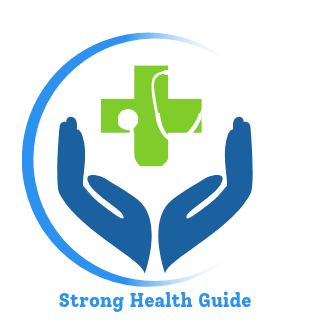In the fast-paced world of modern professionals, balancing work responsibilities with personal wellness can seem like an insurmountable task. However, prioritizing regular exercise is one of the most effective ways to enhance both personal health and work performance. Exercise not only benefits physical health but also significantly boosts mental well-being, resilience, and productivity. Below, we explore the importance of regular exercise for professionals, how it contributes to better work-life balance, and practical strategies for incorporating exercise into even the busiest schedules.

Why Exercise Matters for Professionals
A commitment to regular exercise has profound effects on the mind and body, helping professionals meet the demands of a high-stress, often sedentary lifestyle. Here are some of the key benefits:
1. Enhanced Mental Clarity and Cognitive Function
Physical activity stimulates blood flow to the brain, increasing oxygen and nutrients that support cognitive functions. Regular exercise is linked to improved memory, focus, and problem-solving skills, all of which are critical for excelling in the workplace. For professionals, this means fewer moments of brain fog and improved clarity, enabling them to make better decisions and approach complex tasks with a sharper mind.
2. Reduced Stress Levels and Better Emotional Health
Work-related stress is a common challenge, and prolonged stress can lead to burnout, fatigue, and reduced productivity. Exercise is a natural way to combat stress, as it helps regulate the release of cortisol, the body’s primary stress hormone. Additionally, exercise triggers the release of endorphins—often called “feel-good” hormones—that improve mood and help individuals feel more positive and resilient in the face of challenges.
3. Increased Energy Levels and Stamina
Paradoxically, expending energy through exercise can result in higher energy levels over time. Exercise strengthens the cardiovascular system, improves lung capacity, and enhances muscular endurance, which collectively translate into a body that feels more capable and energized throughout the day. For professionals, this can mean staying alert and productive during late-afternoon meetings rather than succumbing to fatigue.
4. Better Sleep Quality
Quality sleep is vital for physical and mental restoration, and exercise plays a significant role in promoting better sleep. Physical activity helps regulate the body’s internal clock and encourages deeper, more restful sleep. For those with high-stress jobs, improved sleep translates to better resilience, concentration, and overall mood during the workday.
Barriers to Exercise for Professionals
Despite the clear benefits, many professionals struggle to make time for exercise. Common barriers include long work hours, busy family commitments, and the sedentary nature of many modern jobs. Additionally, exhaustion from a demanding workday can make it hard to find the motivation to engage in physical activity. However, overcoming these challenges is possible with the right strategies.
Strategies for Incorporating Exercise into a Busy Schedule
For professionals with packed schedules, the key to regular exercise lies in flexibility, creativity, and commitment. Here are some practical tips for making exercise a sustainable part of a busy lifestyle:
1. Schedule Short Exercise Breaks Throughout the Day
Short, frequent exercise breaks can be just as beneficial as a single, longer workout session. For instance, taking a 10-minute walk during a lunch break or doing a quick stretch session between meetings can help reduce stress and improve focus. Additionally, exercises such as desk stretches or bodyweight movements (e.g., squats, lunges, or push-ups) can be performed without leaving the office, making them an accessible option.
2. Prioritize High-Intensity Interval Training (HIIT)
High-Intensity Interval Training (HIIT) is a time-efficient workout strategy that alternates short bursts of intense exercise with brief recovery periods. Research shows that just 20–30 minutes of HIIT can provide substantial cardiovascular and metabolic benefits. For busy professionals, HIIT is an excellent way to maximize workout efficiency and achieve fitness goals in less time.
3. Make Exercise Part of Your Commute
If feasible, consider walking, cycling, or even jogging as part of the daily commute. This not only ensures regular exercise but also serves as an opportunity to transition mentally between home and work. For those using public transportation, getting off a stop early and walking the rest of the way can be an easy way to add extra movement.
4. Utilize Lunchtime for Physical Activity
Lunchtime workouts are another effective strategy. Many gyms now offer quick, 30-minute classes designed for lunchtime workouts, or you could do a brisk walk or run during this break. Using this time to exercise can help rejuvenate energy levels for the rest of the day and reduce the need for caffeine or sugary snacks to stay alert.
5. Leverage Technology for Accountability and Motivation
Fitness apps and wearable devices offer easy ways to set goals, track progress, and stay motivated. Many apps also provide virtual classes and reminders, helping professionals remain consistent. Technology can also add an element of enjoyment, as seeing improvements and earning “achievement badges” can boost motivation.
Building a Routine that Supports Both Work and Wellness
A consistent exercise routine can positively impact other wellness habits. For instance, regular exercisers often find themselves more conscious of their diet, hydration, and sleep habits. Establishing a realistic, manageable routine is key. Start by committing to just two or three sessions per week, even if they’re short. Over time, as exercise becomes part of the regular routine, it will feel like a natural extension of one’s day, rather than an added task.
Conclusion: Prioritizing Health for Professional Success
Balancing work responsibilities with personal wellness doesn’t have to be an either/or decision. In fact, investing in personal wellness through regular exercise enables professionals to bring their best selves to both their work and personal lives. The benefits of exercise—including improved mental clarity, stress management, and overall resilience—make it a vital component of a sustainable, successful professional life.
In the end, a commitment to regular exercise is an investment in one’s overall well-being and career longevity. By making even small, incremental changes to incorporate more movement into daily life, professionals can enjoy a healthier, more balanced life while maintaining peak performance in their careers.
